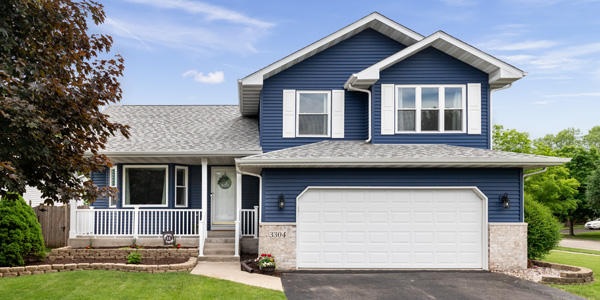How to Use a Reverse Mortgage (HECM) to Pay for Long-Term Care
Long-term care is one of the largest and most unpredictable expenses in retirement. Many retirees and their families struggle with how to pay for long-term care without draining savings or selling investments at the wrong time.
One often-overlooked solution is using a Home Equity Conversion Mortgage (HECM) — also known as a reverse mortgage — as part of a long-term care funding strategy.
If you’re age 62 or older and own your home, a reverse mortgage may provide financial flexibility when planning for:
- In-home care
- Assisted living
- Skilled nursing care
- Long-term care insurance premiums
Let’s explore how a HECM can fit into long-term care planning.
What Is a HECM (Reverse Mortgage)?
A Home Equity Conversion Mortgage (HECM) is a federally insured reverse mortgage that allows homeowners age 62+ to convert part of their home equity into accessible funds.
Unlike a traditional mortgage:
- No required monthly mortgage payments* are due
- You must continue paying property taxes, insurance, and maintaining the home
- The loan becomes due when you permanently leave the home
This structure makes a reverse mortgage a potential funding tool for long-term care expenses.
Why Long-Term Care Planning Is so Important
Long-term care needs often begin gradually:
- Family caregiving at home
- Paid in-home care
- Assisted living
- Skilled nursing facilities
According to industry cost surveys, long-term care expenses can range from tens of thousands to well over $100,000 per year, depending on location and level of care. Skilled nursing care in some areas can exceed $180,000 annually.
Many retirees are not financially prepared for these costs.
That’s where home equity may play a role.
4 Ways to Use a Reverse Mortgage for Long-Term Care
1. Create a Long-Term Care Line of Credit
One proactive strategy is opening a HECM Line of Credit (RELOC) before care is needed.
Unlike traditional home equity lines, the unused portion of a reverse mortgage line of credit grows over time. This means your borrowing capacity can increase in later years — when the likelihood of needing care is higher.
Benefits include:
- Creating a dedicated long-term care reserve
- Reducing the need to sell investments during market downturns
- Preserving retirement accounts
- Accessing funds that may be tax-free**
This approach functions as a self-funded long-term care backup plan.
2. Use a Reverse Mortgage to Support Long-Term Care Insurance
Long-term care insurance premiums often increase over time. Some retirees find policies difficult to maintain.
A reverse mortgage can help:
- Pay rising long-term care insurance premiums
- Supplement a smaller policy
- Provide an alternative for those who don’t qualify for coverage
Using home equity may allow you to preserve insurance benefits without straining monthly cash flow.
3. Cover Gaps in Long-Term Care Coverage
Even strong long-term care insurance policies may not cover:
- Elimination periods
- Extended care beyond policy limits
- Inflation-related cost increases
- Higher levels of care such as memory care
A HECM can provide supplemental funds to fill these gaps, helping avoid large withdrawals from retirement accounts during volatile markets.
This strategy may help protect:
- Investment portfolios
- Spousal financial security
- Estate and legacy goals
4. Use Home Equity Before Medicaid
Many families begin long-term care as private pay and only consider Medicaid after significant assets have been spent.
In certain situations, a reverse mortgage may help:
- Fund private-pay care
- Preserve other savings longer
- Provide financial flexibility during Medicaid planning
Because Medicaid eligibility rules vary by state — and include a five-year look-back period — it is important to work with a qualified elder law attorney when coordinating strategies.
Why Reverse Mortgages Are Often Overlooked in Long-Term Care Planning
Despite being a powerful tool, reverse mortgages are frequently misunderstood.
Common reasons homeowners overlook a HECM include:
- Outdated perceptions about reverse mortgages
- Lack of coordination between financial professionals
- Focusing only on investments while ignoring home equity
For many retirees, their home represents their largest asset — yet it often remains unused in retirement income planning.
Is a Reverse Mortgage Right for Long-Term Care?
A reverse mortgage is not a one-size-fits-all solution. However, when used strategically, it can:
- Increase financial flexibility
- Protect retirement savings
- Reduce stress during health transitions
- Provide options without required monthly mortgage payments*
The key is planning early — before care is urgently needed.
If you are considering how to pay for long-term care, exploring how a HECM fits into your overall retirement strategy may be worthwhile.
*Borrower must occupy home as primary residence and remain current on property taxes, homeowner’s insurance, the costs of home maintenance, and any HOA fees. **Please consult a qualified tax advisor regarding your individual situation.









